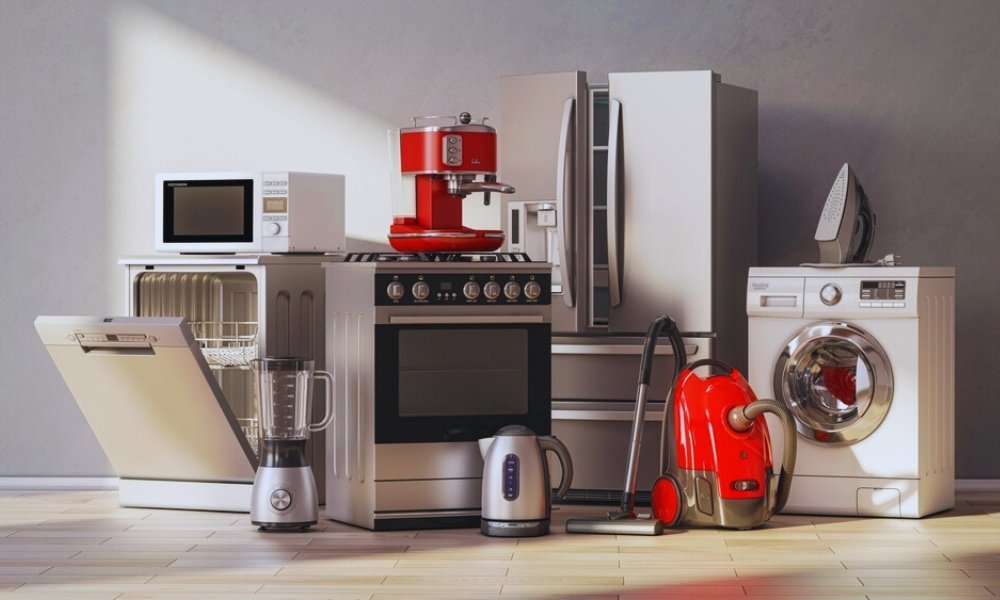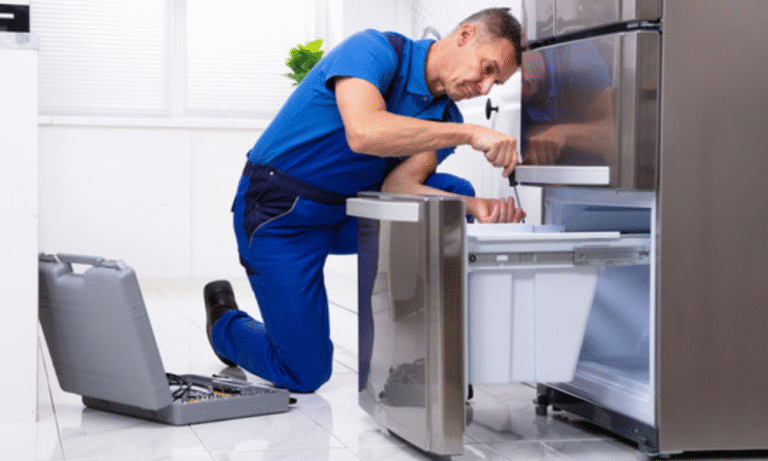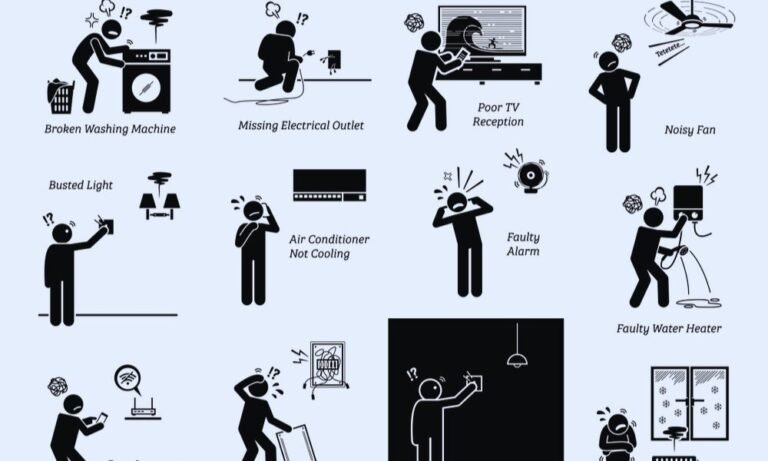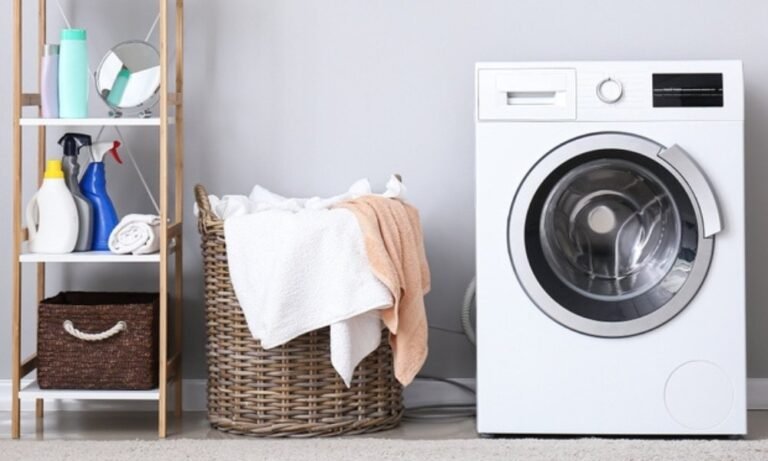Estimated reading time: 5 minutes
Home appliances make daily life easier, but they also contribute to higher utility bills when not maintained properly. Many people don’t realize that simple maintenance and better usage habits can help reduce unnecessary power consumption.
I’ve worked with countless clients who unknowingly spend more than necessary just because their appliances aren’t running at peak performance. The good news? A few small changes can cut costs and extend the lifespan of your household essentials.
Let’s talk about how to keep your appliances working efficiently without breaking the bank.
What You’ll Learn in This Guide
How regular upkeep improves performance and lowers costs
The best ways to use household devices efficiently
When it’s time to replace older models with better options
Built-in settings that help optimize performance
If you want to reduce wear and tear while saving money, let’s get started.
Routine Maintenance for Better Performance
Appliances that are well taken care of run smoother and last longer. Here’s how to keep your most-used items working properly:
Refrigerator & Freezer
- Clean the coils every six months—dust buildup makes it harder to maintain the right temperature.
- Check door seals for cracks or gaps—loose seals force the unit to work harder.
- Keep it stocked—a fuller fridge helps regulate cold air better.
- Set the right temperature—around 37-40°F for fresh food storage and 0°F for frozen items.
Related Read: Refrigerator Not Cooling? Troubleshooting Tips to Know
Washing Machine
- Stick to cold water cycles—heating water accounts for most of a washer’s power use.
- Run full loads but don’t overload—this keeps it running efficiently.
- Clean the lint filter regularly—it prevents blockages that cause longer cycles.
Related Read: How to Extend the Lifespan of Your Washing Machine
Dryer
- Clear the lint trap after every use—better airflow means shorter drying times.
- Check the vent hose for blockages—clogged vents waste energy and pose a fire risk.
- Use dryer balls—they separate clothes to improve airflow and speed up drying.
Dishwasher
- Run only full loads—this maximizes efficiency.
- Use eco-friendly settings—modern machines have options that use less water and power.
- Skip heated drying—air-drying dishes saves electricity.
Oven & Stove
- Keep oven doors closed while cooking—each time it opens, heat escapes.
- Use convection mode—it circulates heat more evenly, reducing cook time.
- Choose the right cookware—glass and ceramic hold heat better.
Smarter Usage Habits That Reduce Waste
Even the best appliances won’t save money if they aren’t used correctly. Here’s how to maximize efficiency every day:
Unplug small appliances when not in use—many continue to draw power even when off.
Use power strips—this makes it easy to turn off multiple devices at once.
Adjust thermostat settings—lowering heat or cooling levels slightly makes a big difference.
Run appliances at off-peak hours—some electric companies offer lower rates at night.
Keep your home insulated—this helps reduce stress on temperature-regulating devices.
When to Upgrade to More Efficient Models
Sometimes, maintaining an old appliance costs more than replacing it. If yours is over 10 years old, it might be time for an upgrade.
How to Choose the Best Replacement
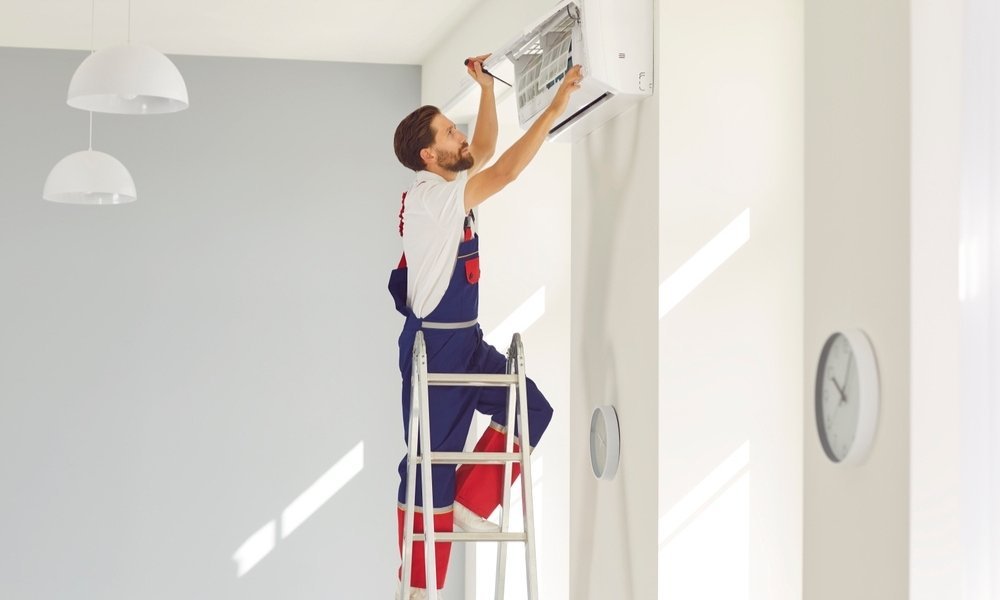
Look for ENERGY STAR® labels—these products use significantly less electricity and water.
Consider inverter technology—common in fridges and air conditioners, it adjusts power usage based on demand.
Opt for smart features—some devices monitor power consumption automatically.
Check water usage—for washing machines and dishwashers, lower water consumption also saves on utility bills.
When Should You Replace?
Refrigerators over 10-15 years old—newer models are up to 40% more efficient.
Washing machines older than a decade—front-loading models use less energy and water.
Dishwashers past 8 years—modern options clean better while using fewer resources.
Related Read: Why Regular Maintenance Saves Money on Appliance Repairs
Making the Most of Built-In Features
Most modern appliances include special settings that help optimize performance. Here are a few worth using:
Refrigerator:
Set to optimal temperatures—avoid overcooling.
Let hot food cool before storing—this reduces strain on the system.
Oven:
Use convection settings—cooks food faster and more evenly.
Limit preheating—not all dishes require it.
Electronics & Small Devices:
Enable power-saving modes—lower brightness and automatic sleep functions help.
Use smart plugs—turns off unused gadgets automatically.
Tracking Power Usage for Better Control
If you’re serious about lowering costs, tracking usage helps identify problem areas.
Smart Meters: Some utility companies offer real-time monitoring, so you can see which devices use the most electricity.
Energy Usage Apps: Many smart appliances let you track consumption through a mobile app.
Final Thoughts
Keeping appliances running well isn’t just about avoiding repairs—it’s also about saving money in the long run. By following simple maintenance routines, adjusting how you use household devices, and upgrading when necessary, you can cut costs while extending their lifespan.
Looking for more ways to improve efficiency and reduce expenses? Check out these expert guides Related Read: Common Appliance Problems and How to Avoid Them
